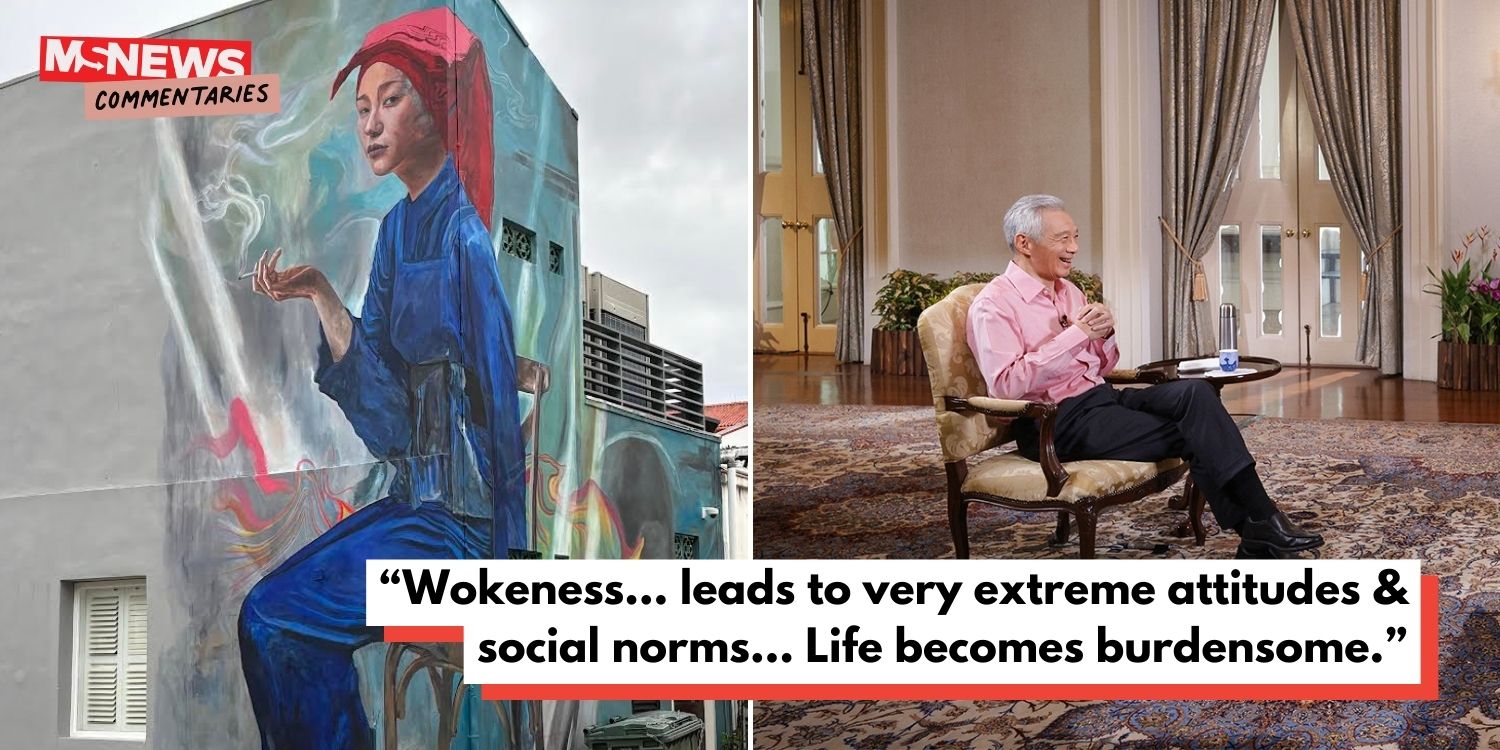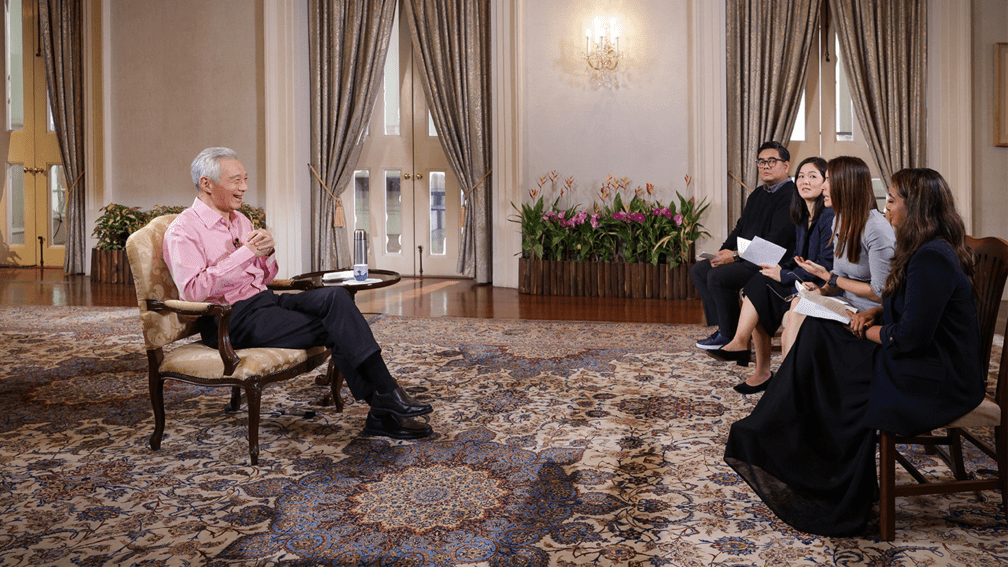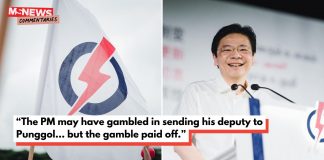Samsui woman mural: Not the first time the Government reacts in a knee-jerk fashion
A recent post by a friend summed up the samsui woman mural furore perfectly. Claiming to have seen an unpleasant looking man and a woman giving off prostitute “vibes”, he wryly asked: “Who at URA do I write in to? And if they are foreigners, do I tell ICA? All it takes is one complaint right?”
If you haven’t heard by now, Singapore-based American artist Sean Dunston is currently benefiting greatly from the Streisand effect, following the Urban Redevelopment Authority’s (URA) clumsy attempt to censor his giant mural of a young samsui woman.
Located at 297 South Bridge Road, the woman is seated on a stool and smoking a cigarette while gazing at the onlooker.
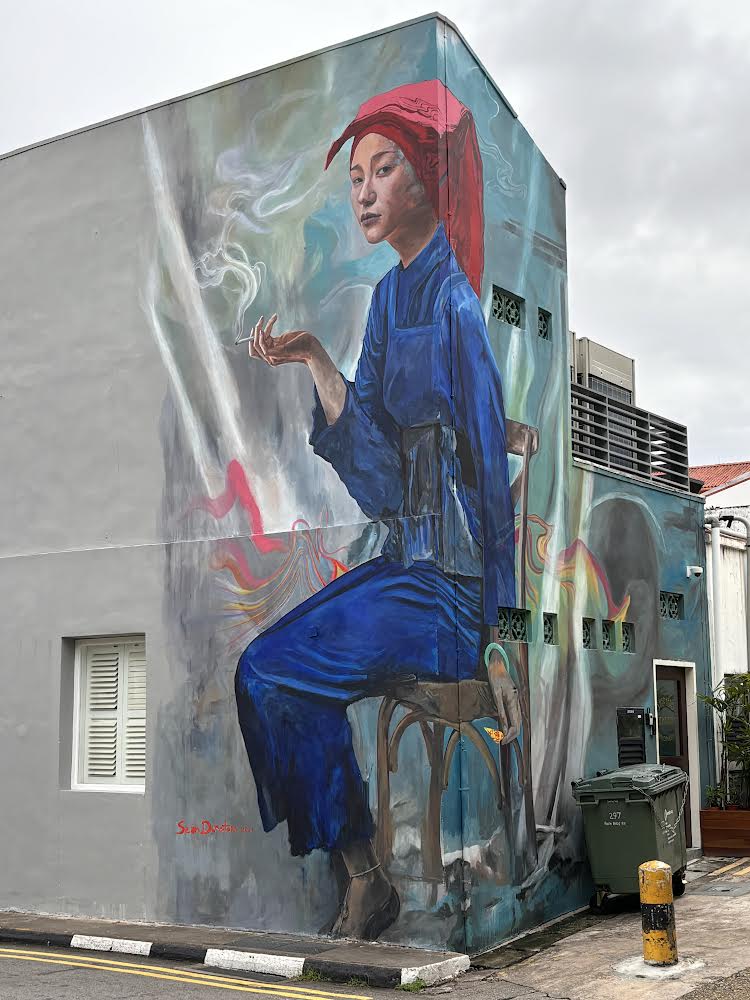
Photo courtesy of Nicholas Yong
The agency cited this bit of feedback by an unnamed member of the public: “We find this mural offensive and is disrespectful to our samsui women. The woman depicted in this mural looks more like a prostitute than a hardworking samsui woman.”
Notwithstanding the lack of substantiation on how exactly the image was “offensive” or “disrespectful”, or why it resembled a sex worker, the URA added that the image of her holding a cigarette, which was “completed without prior approval”, was not in line with the Government’s anti-smoking stance.
It told Mr Dunston to submit a proposal for amending the mural and warned that the temporary permit for the restaurant operating there would be affected.
Netizens get creative after URA requests removal of cigarette in mural of smoking samsui woman
Following a public outcry, local reports said that URA has now “taken note of additional feedback regarding the mural” and asked the landlord of the building “to delay any works to the mural until the review is completed”.
This is giving off vibes of a referee stopping a football match so he can take a look at the VAR monitor, while the players walk around restlessly. And just like in football, there is every chance that the final decision will please no one.
I suppose you could call this an example of the new Prime Minister’s promise that his administration will “re-examine all assumptions”. Others might call it flipping prata.
The power of the complaint
Notwithstanding the dangers of smoking and the historical accuracy of the mural, this entire kerfuffle was exacerbated by a solitary complainant, which makes one marvel at this particular individual’s powers of persuasion.
If only the authorities could be this responsive to complaints about say, the GST hike, or astronomical flat prices, or why the losing establishment candidate is allowed to remain in the ward he contested as a grassroots advisor after the election.
But this is not the first, nor will it be the last time, that a government agency reacts in a knee-jerk fashion to an isolated complaint.
Back in 2016, the National Library Board (NLB) removed and pulped three children’s books after “at least one reader complained” about their homosexual themes, according to The Straits Times.
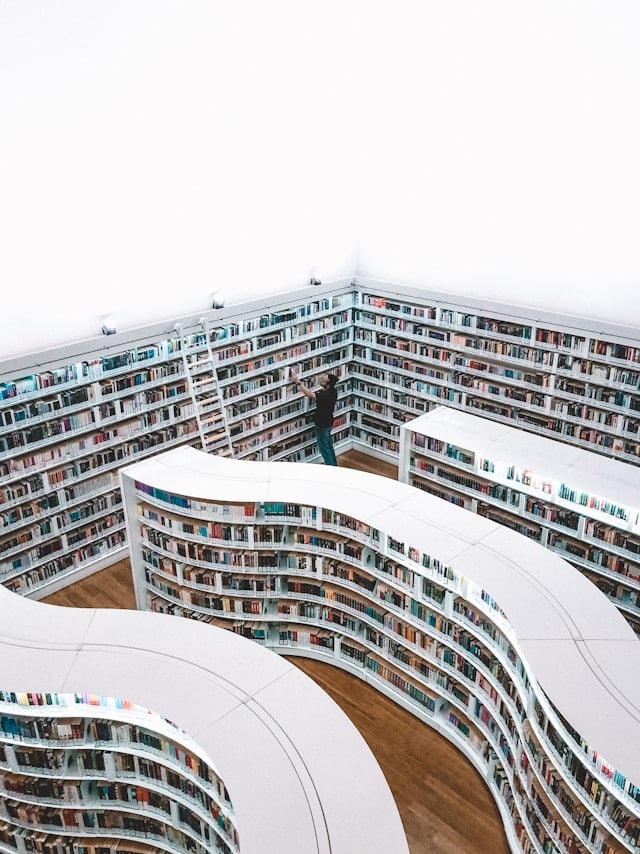
Library@Orchard. Source: Fahrul Azmi on Usplash
This sparked protests from prominent literary figures such as the late Adrian Tan, who asked for more transparency on the library’s review processes, and wanted reassurances that NLB would “resist external pressure to ban books”.
All this reportedly “saddened” then NLB’s chief executive Elaine Ng, which is similar to the way many of us in the arts community felt about the NLB caving in to complaints from people attempting to foist their values on the rest of society.
An uneasy relationship with the arts
Singaporeans will be all-too-familiar with the relentless logic of bureaucracy, in a society that is a stickler for the rules. This insistence on enforcing regulations, regardless whether they make sense or not, has conditioned us to think only in straight lines, which can be a difficult pattern to break out of.
The 1984 play No Parking On Odd Days by the late playwright Kuo Pao Kun, about a man who contests a parking fine in order to teach his young son about the value of standing up for your beliefs, is a perfect allegory for the soul-crushing effects of bureaucracy.
But the latest move by the URA also has to be placed in the context of the Government’s historically uneasy relationship with the arts. Many a book or play has been censored or banned for various reasons, while some arts practitioners — including Kuo — have even been jailed.
Official guidelines on race and religion, which will be enshrined further by upcoming amendments to the Maintenance of Racial Harmony Act, also mean that creatives have to tread carefully in the issues their works address.
As a published author, I am instinctively wary of censorship, but do not believe in unfettered freedom of expression. Nevertheless, art should not be held hostage to the whims and fancies of a minority.
After all, is that not the very purpose of art: to provoke debate? A mature, self-confident society should not feel the need to cancel every single thing that offends — but it seems we are still a long way off from having open conversations about sensitive subjects.
A more resilient, cohesive society
It feels appropriate to end off with the words of Senior Minister Lee Hsien Loong, who warned of the dangers of “wokeness” in his farewell interview. While the term has often been misused as a label for anything that offends, his words are still instructive.
“In the West, they’ve got a movement called ‘wokeness’, where you’re super sensitive about other people’s issues, and you become hypersensitive when other people somehow or other say things or mention things or refer to you, without the respect that you or your super sub-group feel you are entitled to.”
He added that this could lead to “very extreme attitudes and social norms”, and this makes life “very burdensome”.
“It does not make us a more resilient, cohesive society with a strong sense of solidarity. We must be more robust,” he concluded.
I couldn’t agree more.
Nicholas Yong is a veteran journalist who has worked at media outlets such as BBC News and Yahoo News Singapore over the past 17 years.
Also read: AWARE S’pore says samsui woman mural may perpetuate ‘male gaze that exoticises female subjects’
AWARE S’pore says samsui woman mural may perpetuate ‘male gaze that exoticises female subjects’
Have news you must share? Get in touch with us via email at news@mustsharenews.com.
Featured image adapted from Nicholas Yong and the Prime Minister’s Office’s website.
